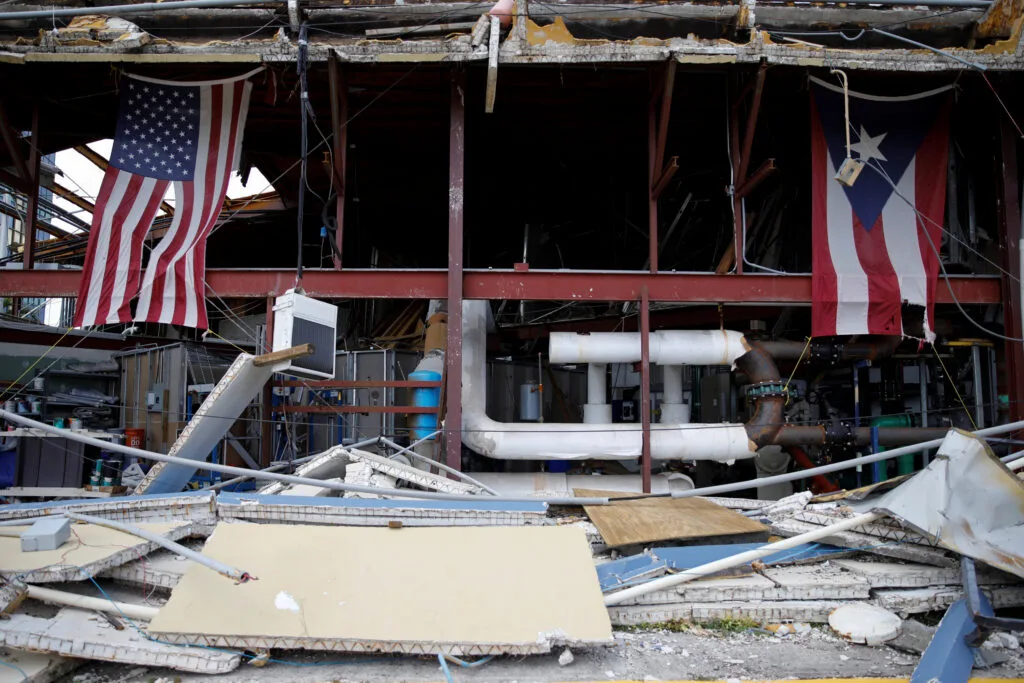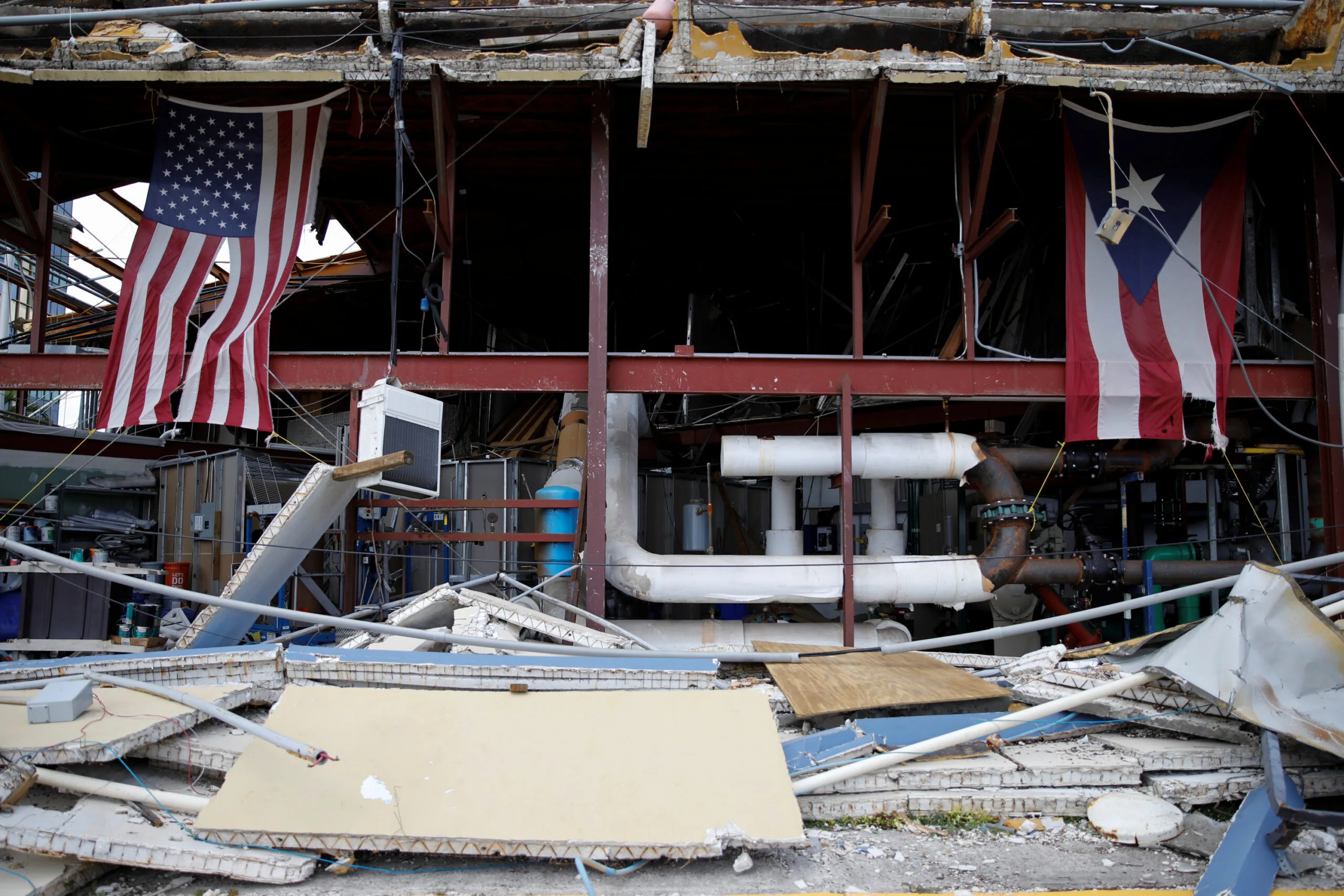Inside the Federal Response to Maria: “Is This Really the Best FEMA Can Do?”
May 1, 2018
Share
Just two weeks ago, nearly seven months to the day after Hurricane Maria devastated Puerto Rico, power went out on the entire island — again.
It was only the latest development in a troubled recovery effort that left millions of Americans in the dark for months after the storm made landfall last September.
In the new documentary, Blackout in Puerto Rico, FRONTLINE and NPR investigate the federal response to Hurricane Maria — and uncover a government relief effort in chaos, struggling with key contracts, basic supplies and its own workforce.
Especially in contrast to the government’s response to Hurricanes Harvey and Irma on the U.S. mainland.
In the above excerpt, NPR’s Laura Sullivan, the documentary’s correspondent, reports that just over a week after the storms hit, the federal government had three times as many people on the ground in Texas, and twice as many in Florida, as it did in Puerto Rico. Nine days into the disaster, federal officials had handed out, on average, twice as much water, and more than four times as many meals and tarps in Houston and Florida.
The Army Corps of Engineers’ temporary roof repair program was also glaringly slow on the island — putting up just 439 roofs in the first 30 days after the storm, compared to more than 4,500 in the first month after Irma in Florida.
Plus, according to agency documents reviewed by the investigative team, half of FEMA’s staff on the island were trainees or unqualified for this kind of disaster work. And while Puerto Rico’s hiring of Whitefish, a company with no experience restoring power grids, caused controversy, few knew that the federal government had taken a similar step.
“All of a sudden, about the eighth day in, the administration asked us to be able to step up and to be able to take on this mission of grid repair,” said Lt. Gen. Todd Semonite, chief engineer of the Army Corps of Engineers, about his agency’s effort to restore power. “But it is not something that we even planned on doing in any kind of a disaster. We don’t do grid repair, usually, normally, doctrinally.”
In the above excerpt, Sullivan talks with Semonite about how the Army Corps went on to contract with a company that, while experienced in building power plants, had no experience putting power grids back together. She uncovers government emails that describe troubles with the shipping of supplies. And she questions FEMA’s Michael Byrne, the agency’s coordinating officer for Puerto Rico, about its efforts on the island — including how contractors hired by FEMA failed to deliver hundreds of thousands of tarps, leaving the devastated homes of many Puerto Ricans exposed to the elements for months.
“Is this really the best that FEMA can do?” she asks.
Byrne defends the federal response, saying the real villain is the storm: “We’ve done nothing but try to remedy that,” he says. “You’ve found a number of places where we weren’t perfect. I’ll accept that.”
For more on the federal response to Hurricane Maria — and why more than 100,000 people in Puerto Rico are still without power as the next hurricane season approaches — watch Blackout in Puerto Rico, from Sullivan, FRONTLINE producer Rick Young and his team.
Blackout in Puerto Rico premieres Tuesday, May 1, at 10/9c on PBS (check local listings) and online. A two-part series is also airing on NPR’s All Things Considered.

Related Documentaries
Latest Documentaries
Related Stories
Related Stories
Explore
Policies
Teacher Center
Funding for FRONTLINE is provided through the support of PBS viewers and by the Corporation for Public Broadcasting, with major support from Ford Foundation. Additional funding is provided the Abrams Foundation, Park Foundation, John D. and Catherine T. MacArthur Foundation, Heising-Simons Foundation, and the FRONTLINE Trust, with major support from Jon and Jo Ann Hagler on behalf of the Jon L. Hagler Foundation, and additional support from Koo and Patricia Yuen. FRONTLINE is a registered trademark of WGBH Educational Foundation. Web Site Copyright ©1995-2025 WGBH Educational Foundation. PBS is a 501(c)(3) not-for-profit organization.






















